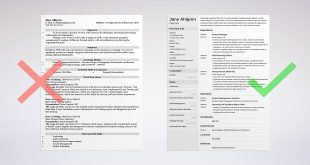Illegality
The main issue with regard to illegal contracts is the effect of illegality on a contract. The most often examined topic with regard to contracts that are declared void on grounds of public policy contracts in restraint of trade.
Contracts illegal by statute
The statute may declare a contract illegal, for example, the Competition Act 1998.
The statute may prohibit an act, but declare that it shall not affect the validity of a contract, for example, the Consumer Protection Act 1987. The statute may prohibit an act but not stipulate its effect on the contract. The status of the contract will in this case be a matter of interpretation for the court. In Re Mahmoud and Ispahan! (1921), the court decided that a statement that ‘a person shall not buy or otherwise deal in linseed oil without a license’ was a prohibition, and a contract entered into by a person without a license was therefore void. The courts are reluctant to imply a prohibition when this is not clearly indicated in the statute. In Hughes v Asset Managers (1995), the court held a contract valid despite the fact that a document had not been signed by a person authorized to do so as required by statute.
Contracts illegal at common law
An agreement to commit a crime, a tort or a fraud. An agreement to defraud the Inland Revenue (Napier v Business Associates (1951)). Contracts damaging to the country’s safety or foreign relations. Contracts interfere with the course of justice, for example, contracts to give false evidence. Contracts lead to corruption in public life (Parkinson v Royal College of Ambulance (1925)). Contracts tending to promote sexual immorality (Pearce v Brooks (1866))
Contracts illegal in their performance
A claim by the innocent party to enforce the contract in these cases is strong. In Marles v Philip Trant (1954), the defendant sold winter wheat described as spring wheat, without an accompanying invoice as required by statute. Held—the plaintiff could sue for damages for breach of contract. The contract was illegal in its performance, but not in its inception. In Strongman v Sincock (1955), Sincock failed to get licenses that were needed to modernize some houses which belonged to him and refused to pay for the work on the basis that the contracts were illegal. Held—Strongman could not sue on the illegal contracts but could sue Sincock on his collateral promise to obtain the licenses.
Effect of a restraint
The ‘blue pencil’ test. It must be possible to sever the illegal part simply by deleting words in the contract. The court will not add words, substitute one word for another, rearrange words or in any way redraft the contract. In Mason v Provident Clothing Co Ltd (1913), the House of Lords refused to redraft a promise not to work within 25 miles of London. But, in Goldsoll v Goldman (1915), a dealer in imitation jewelry promised not to deal in real or imitation jeweler either in the UK or abroad. Dealing in real jewelry and dealing abroad were severed.
Valid contracts—contracts that can be enforced against a minor
In Nash v Inman (1908), a student purchased 11 silk waistcoats while still a minor. The court held that silk waistcoats were suitable to the conditions of life of a Cambridge undergraduate at that time, but they were not suitable to his actual needs as he already had a sufficient supply of waistcoats. It is important to distinguish between luxurious goods of utility and goods of pure luxury. The status of the minor can make the former into necessaries, but the latter can never be classified as necessaries.
Beneficial contracts of service
In De Francesco v Barn num (1890), a contract whose terms were burdensome and harsh on the minor was held void. But, in White City Stadium v Doyle (1935), where a minor had forfeited his payment for a fight because of disqualification, the contract was nevertheless enforceable against him. Where a contract is on the whole for the benefit of a minor, it will not be invalidated because one term has operated in a way that is not to his advantage.
Persons of unsound mind and drunken persons
Such contracts may be affirmed during a sober or lucid moment. The Sale of Goods Act requires that where ‘necessaries are sold and delivered to a person who by reason of mental incapacity or drunkenness is incompetent to contract, he must pay a reasonable price for them’.
Last word
Illegal contracts are classified in different ways by different authorities. In this chapter, a distinction is drawn between contracts that involve the commission of common law or statutory offense, and those that are void as being contrary to public policy.






